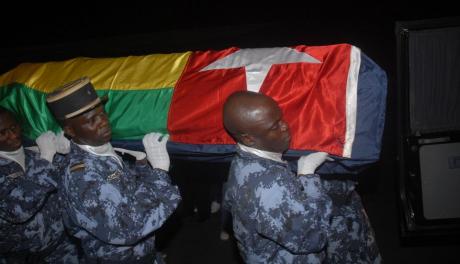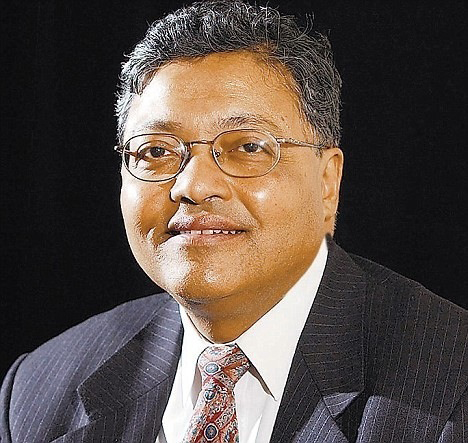Terrorist attacks, like the one on the Togo team in Cabinda, always raise more questions than answers.
For me the most important question is one the administrators of football and sport in general must answer: what part did they play in this tragedy and what can they do to make sure it never happens again?
But before that let me deal with the many other questions, some of them inevitably centred on how the tournament was awarded to Angola in the first place. This was done in September 2006 when Confederation of African Football (CAF) President Issa Hayatou described Angola’s bid as the strongest. It was decided that Angola did not have to go through the usual nine month bidding process.
With the benefit of hindsight of Friday’s attack, that process looked terribly damning but I dare say the award was no more tawdry or skewed than many a one CAF, or for that matter FIFA, have made over the years to other countries.
I can also see why the Angolan Government would have wanted to have matches in Cabinda despite the fact that both the Foreign Office and United States State Department feel that, while the city is safe, the interior of the province is not a place for anything other than “essential travel”.
Cabinda has Angola’s lucrative oil resources. It is money from Cabinda’s oil that has helped to finance the infrastructure construction. The Chinese, so active in Africa, designed the stadium where the matches are scheduled. And it is worth noting that the Angolan Government is in hock to China to the tune of some £7 billion.
True this land, separated from the rest of the country by the territory of the Democratic Republic of Congo, is where the government and the rebels, The Front for the Liberation of Cabinda, were fighting for more than 30 years. But that rebel war was supposed to have ended in 2006, the year Angola secured the tournament, and hosting matches in Cabinda is a great opportunity to advertise the fact that the powers in Luanda do control this vital oil rich province.
With the Angolan Government eager to use the tournament to advertise the country (it is supposed to have spent a $1 billion developing the infrastructure for the tournament) it would have been impossible not to have had matches there. That would have gone against every desire to use the tournament to demonstrate the reach of the state. You cannot host a major tournament like the African Cup of Nations with part of the country, particularly the richest part, as a no-go area.

Almost inevitably this attack has raised that old chestnut: so what does this mean for South Africa staging the continent’s first World Cup? Can that be a suitable place for such an event?
Even to contemplate such a question is to show a very western centric view of the world, if not almost a racist one. This is a point well made by Danny Jordaan, the organiser of the South African World Cup. As he put it, a bomb in Madrid would not raise questions about security in London, and Luanda is further away from Johannesburg than Madrid is from London.
In many ways, the most troubling issue we have to ponder is the one that was posed after the attack on Sri Lankan cricketers in Pakistan last March. This was that international terrorists no longer treat sport as immune and sportsmen are as much a target as any other group of individuals.
How different this makes today’s world to the one our fathers inhabited cannot be over emphasised. Here the contrast with the Indian subcontinent and events there just over 60 years ago is particularly telling.
Then the subcontinent was going through cataclysmic change as British rule came to an end. The rule ended with the partition of the landmass into the two dominions – India and Pakistan.
It is important to emphasise that the creation of Pakistan was based on religion – the Muslims of the subcontinent felt they needed their own homeland and could not be in a minority where the Hindus were a majority. The British withdrawal was accompanied by slaughter on a truly massive scale -Hindus and Sikhs battling Muslims in killings that were said to have claimed a million lives. Mass migration of millions more took place between the two dominions, Hindus and Sikhs fleeing to India, Muslims in the opposite direction to Pakistan.
Yet, and this is the important point which has huge relevance to sport, just before these terrible events Hindus, Muslims, Christians and other religious groups had cricket teams organised along religious lines. What is more, every year in Bombay, as the city was then known, they played in a tournament where thousands gathered to witness matches between a Hindu cricket team and a Muslim one. Millions more followed the matches on radio.
Outside the stadium politicians of both faiths were using religion to stoke up terrible passion that would fuel the dreadful killings only a few months afterwards. But inside the stadium Hindus and Muslim sat next to each other and their talk was not of religious differences but of the quality of cricket they were witnessing. No Hindu or Muslim, however inflamed by religious passion, would have dreamt of using the cricket stadium to threaten, let alone, kill someone from another religion.
It is this immunity for sport that now lies shattered.
Back in the 40s the Hindus and Muslims who came to watch a game of cricket did not see it as anything other than a pleasant ball game, a diversion if you like from the many problems of life.
But modern sport claims a much higher role. Indeed often during World Cups and Olympics, sports administrators talk as if they can reach places politicians cannot.
They have helped make sport a spectacle, often drawing in people who have no interest in sport.
It was almost inevitable that terrorists, following their own twisted, murderous, logic, would seek to target such events.
The sports administrators’ response is to say security must be a matter for the state. That is fair enough. However sports administrators must also take responsibility for the events they stage. They can no longer say that no terrorist group will attack sports events or sports men and women. Today it is incumbent on administrators hosting events not to fold their arms and expect governments to manage security. They must make sure they work with governments and understand their responsibility for the security of the players, coaches and supporters.
When staging a tournament like the African Cup of Nations, which can almost dwarf the country hosting it, the organisers must share responsibility with the government for making the security work.
The administrators cannot claim such a high status for their tournament without bearing some of the burden which comes with that enhanced status.
Mihir Bose is one of the world’s most astute observers on politics in sport and, particularly, football. He formerly wrote for The Sunday Times and The Daily Telegraph and until recently was the BBC’s head sports editor. He will be writing a weekly column for insideworldfootball.
